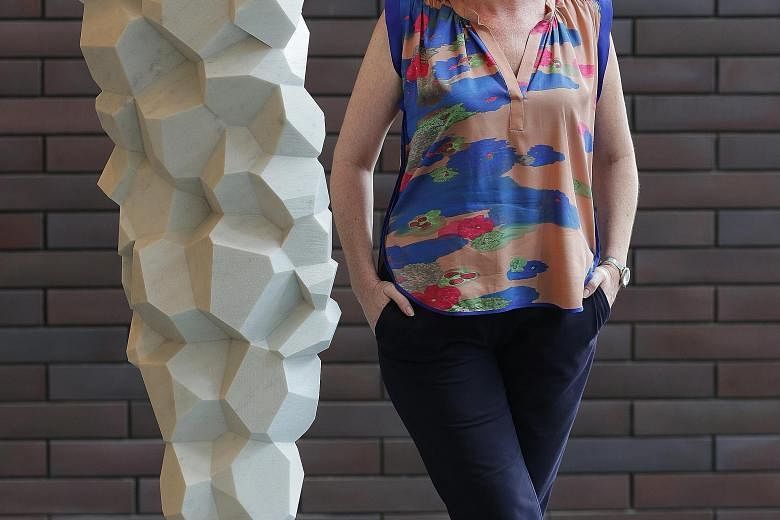When Ms Audrey Mitchell and her husband packed up their young family and moved to Singapore from Britain in 2004, they were excited about their new life here.
He found a job as a financial adviser, while she stayed home to look after their two young children.
But things unravelled after a few years. "It's hard emotionally when you move away. You leave your safety net, your friends and family," said Ms Mitchell, now 41.
"The person who's working is going out more, while I was at home most of the time. We drifted apart."
They divorced two years ago, after a draining process. The lack of legal aid for expatriates means court battles are costly, and many stay-at- home parents lack the support locals have in returning to work.
Ms Mitchell was granted full custody of their three children, now aged nine to 17. Her former husband pays the rent for their apartment, utility bills and school fees. The children attend local schools.
But it has not been smooth sailing. She was twice threatened with eviction after her ex-husband lapsed on the rent. She had to ask her parents for financial help at times.
"I wish now I had been more in control of our finances in regard to the future... making sure I had something for me, like a pension, my own life and medical insurance."
She thought of returning to Britain with her children, where she could be with family, but said that under the Hague Conventions - which are meant to offer protection from cross-border child abductions - she cannot leave with the kids without her ex-husband's consent.
Still, she now has a job as a marketing manager at a financial firm and had her permanent residency (PR) approved. "I'm starting to move forward with my life," she said.
Like Ms Mitchell, Canadian Jamie Shah, 36, who has been here for five years with her husband, did not find life in Singapore easy initially.
They moved here after he got a job at a telecommunications firm here. He often travelled for work.
Ms Shah described her first year here as "absolutely miserable". "There was no one I could call to have coffee. I spent a whole year sitting at home, watching TV and eating chocolate bars." She accompanied her husband on work trips, but ended up watching TV in the hotel.
The turning point was when she started an online bakery. It opened doors for her to meet people.
Two years ago, she gave birth to her daughter and met parents with children around the same age.
But expat friends tend to come and go. "One of the most commonly asked questions in the community here is, 'How long are you going to be here for?'" she said.
Ms Shah, now the president of the Canadian Association of Singapore, advises newcomers to join groups and get to know people. "It's not comfortable, it's not natural, but the alternative is to just sit at home with nothing to do."

